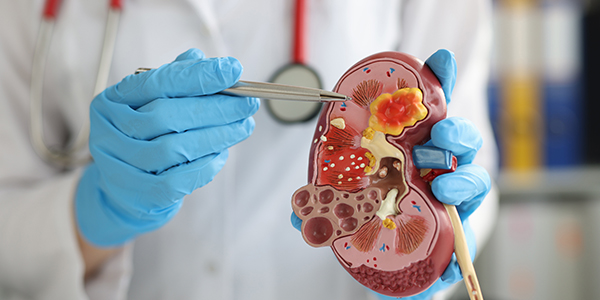Unveiling Fecal Microbiota Transplantation: Your Inquiries Resolved
Delve into the world of Fecal Microbiota Transplantation as we unveil the procedure's intricacies and provide insightful answers to all your queries. Explore the wonders of this groundbreaking treatment, addressing your concerns and empowering you with knowledge for informed decision-making. Discover the transformative potential of Fecal Microbiota Transplantation with our expert guidance.

Unravel the mysteries of Fecal Microbiota Transplantation (FMT) - a groundbreaking treatment that holds transformative potential for gut health. FMT involves the transfer of healthy fecal microbiota from a donor to a recipient, aiming to restore a balanced and diverse gut microbiome. Let's explore the intricacies of this innovative procedure and address common inquiries, empowering you with knowledge for informed decision-making.
Understanding Fecal Microbiota Transplantation
Fecal Microbiota Transplantation is a cutting-edge medical procedure designed to treat conditions related to gut dysbiosis. Dysbiosis refers to an imbalance or disruption in the gut microbiome, which plays a vital role in maintaining overall health. FMT aims to introduce beneficial microorganisms from a carefully screened and healthy donor to the recipient's gastrointestinal tract, promoting microbial diversity and a healthier gut environment.
Conditions Treated with FMT
FMT has shown remarkable success in treating recurrent Clostridium difficile infection (CDI), a severe and persistent bacterial infection that can cause debilitating diarrhea. Studies have also explored the potential of FMT in managing other gastrointestinal disorders, such as inflammatory bowel disease (IBD) and irritable bowel syndrome (IBS). In some cases, diagnostic tools like capsule endoscopy may be recommended to evaluate your small intestine before treatment. Researchers continue to investigate its potential applications in various areas of healthcare.
The FMT Procedure
The Fecal Microbiota Transplantation procedure typically involves the collection of fecal matter from a pre-screened donor. The fecal sample undergoes thorough testing for infectious agents, ensuring the safety of the recipient. Once the sample is deemed safe, it is processed and administered to the recipient either via colonoscopy, enema, capsules, or through a nasogastric tube.
The Transformative Potential of FMT
The gut microbiome plays a critical role in digestion, nutrient absorption, immune system regulation, and even mental health. Imbalances in the gut microbiota have been linked to various health conditions, and FMT provides a promising approach to address these imbalances and restore gut health. By re-establishing a healthy microbial environment, FMT can lead to long-term improvements in gastrointestinal health and overall well-being.
The Importance of Donor Selection and Screening
Donor selection and screening are of utmost importance in Fecal Microbiota Transplantation to ensure safety and effectiveness. Donors undergo rigorous evaluation to identify individuals with a diverse and beneficial gut microbiome. Thorough testing and medical history assessments help minimize the risk of transmitting infections or diseases to the recipient.
Ongoing Research and Advancements
As a relatively new medical procedure, Fecal Microbiota Transplantation continues to be a subject of ongoing research and clinical trials. Scientists are exploring its potential benefits in various conditions beyond CDI, such as metabolic disorders, autoimmune diseases, and more. With each study, we gain valuable insights into the vast potential of FMT as a transformative treatment option.
Empowering Gut Health with FMT
Unveil the transformative potential of Fecal Microbiota Transplantation at Vanguard Gastroenterology Clinic. Our expert team is dedicated to providing comprehensive and patient-centered care, utilizing the latest advancements in gut health treatments. Experience the power of FMT in restoring gut balance and achieving optimal gastrointestinal well-being.
Frequently Asked Questions (FAQs)
How does FMT work, and what conditions does it treat?
FMT works by introducing beneficial microorganisms from a carefully screened donor to the recipient's gut. It has shown remarkable success in treating recurrent Clostridium difficile infection (CDI). Researchers are also exploring its potential benefits in managing other gastrointestinal disorders, such as inflammatory bowel disease (IBD) and irritable bowel syndrome (IBS).
Is Fecal Microbiota Transplantation safe?
FMT is considered safe when performed by experienced healthcare professionals. Donors undergo rigorous screening to ensure the absence of infectious agents and potential health risks. Safety measures are in place to minimize the risk of transmitting infections to the recipient.
How is the FMT procedure performed?
The Fecal Microbiota Transplantation procedure involves collecting a fecal sample from a healthy donor. The sample undergoes thorough testing and processing before being administered to the recipient via colonoscopy, enema, capsules, or through a nasogastric tube.
Can FMT be used for conditions other than recurrent CDI?
While FMT has shown significant success in treating recurrent CDI, ongoing research is exploring its potential applications in other areas of healthcare. Researchers are investigating the benefits of FMT in managing metabolic disorders, autoimmune diseases, and more.
How are donors selected for FMT, and why is it important?
Donors undergo a rigorous selection process to ensure they have a diverse and beneficial gut microbiome. Thorough screening and medical history assessments are conducted to minimize the risk of transmitting infections or diseases to the recipient.
What are the potential benefits of Fecal Microbiota Transplantation?
By restoring a healthy gut microbiome, FMT can lead to long-term improvements in gastrointestinal health and overall well-being. The gut microbiome plays a vital role in digestion, nutrient absorption, immune system regulation, and even mental health.
Is FMT covered by insurance?
The coverage of FMT by insurance may vary depending on the specific policy and the indication for the procedure. Patients are advised to check with their insurance providers to determine coverage eligibility.
